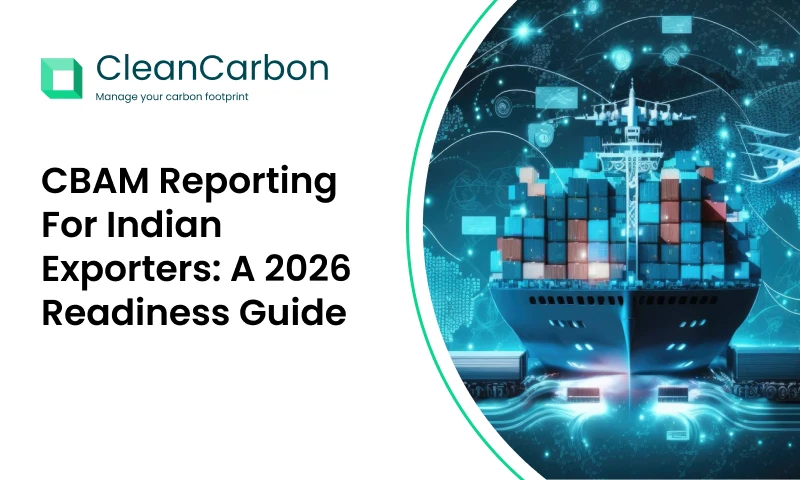What is ESG reporting software and why is it important?
Environmental compliance has become a crucial aspect of corporate governance and sustainability efforts for businesses worldwide. Adhering to environmental regulations is not only a social responsibility but also a way for companies to mitigate risk and build stakeholder trust. However, navigating the complex landscape of environmental compliance can be challenging, especially for organizations operating in different industries and regions. This is where Environmental, Social, and Governance (ESG) tools come into play. ESG tools help streamline environmental compliance by providing data management solutions, carbon footprint calculators, and ESG reporting capabilities. In this blog, we will explore the importance of environmental compliance for businesses, the regulatory challenges they face, and how ESG tools can assist in meeting compliance requirements across various industries, company sizes, and geographical locations.
Understanding Environmental Compliance
Before diving into the role of ESG tools, it is essential to understand what environmental compliance entails. Environmental compliance refers to the legal and regulatory obligations that businesses must fulfill to ensure their operations meet environmental standards set by governing authorities. These standards can cover a wide range of aspects, including air and water pollution, waste management, carbon emissions, and natural resource conservation. Achieving and maintaining compliance requires businesses to monitor and manage their environmental impact, implement sustainable practices, and report on their efforts transparently.
The Importance of Environmental Compliance for Businesses
In today’s world, environmental compliance has a significant impact on a company’s sustainability efforts, social responsibility, and corporate governance. Adhering to environmental regulations demonstrates a company’s commitment to reducing its environmental footprint, minimizing its carbon emissions, and conserving natural resources. By implementing and complying with these regulations, businesses contribute to a more sustainable future, both environmentally and economically. Moreover, prioritizing environmental compliance helps businesses gain a competitive advantage by enhancing their reputation, attracting socially conscious investors, and meeting the expectations of customers, employees, and other stakeholders.
Environmental compliance also plays a crucial role in corporate governance. It requires businesses to establish systems and processes that ensure transparency, accountability, and effective risk management. By integrating sustainability into their governance framework, companies can align their environmental objectives with their overall business strategy, driving long-term value creation for all stakeholders. Compliance with environmental regulations not only protects the environment but also safeguards a company’s reputation, mitigates potential legal and financial risks, and fosters stakeholder trust.
Regulatory Challenges faced by Businesses
Businesses encounter various regulatory challenges when it comes to environmental compliance. Firstly, regulations can vary significantly across different regions and jurisdictions, making it difficult for multinational companies to navigate the compliance landscape. Each jurisdiction may have its own set of rules, reporting requirements, and enforcement mechanisms, adding complexity and potential compliance risks.
Secondly, the ever-evolving nature of environmental regulations poses a challenge for businesses to stay up-to-date and ensure ongoing compliance. New laws and regulations are constantly being introduced, and existing ones are revised or strengthened, requiring businesses to continuously monitor, assess, and adapt their operations accordingly.
Additionally, the data-intensive nature of environmental compliance presents a challenge for businesses. Collecting, managing, and reporting accurate environmental data can be time-consuming, resource-intensive, and prone to errors. To overcome these challenges, businesses need robust data management solutions, risk assessment frameworks, and processes to ensure data accuracy, quality, and transparency.
Introduction to ESG Tools
ESG tools, also known as Environmental, Social, and Governance tools, provide a comprehensive solution for businesses to streamline their environmental compliance efforts. These tools encompass software solutions designed to measure, monitor, and report on sustainability performance. In the growing ESG software space, companies can find platforms that address specific needs, such as climate change management, risk assessment, and sustainability reporting. Leveraging ESG tools enables businesses to automate data input, validation, and reporting processes, providing valuable insights into their sustainability efforts and carbon accounting practices.
What is an ESG Tool?
An ESG tool is a software solution that helps businesses manage their environmental, social, and governance-related data and reporting. These tools enable organizations to track, measure, and analyze their sustainability performance, ensuring compliance with environmental regulations and reporting requirements. In the expanding ESG software space, businesses can find a range of tools tailored to their specific needs, offering features such as data collection, analysis, benchmarking, and assurance.
ESG tools facilitate the collection and centralization of data related to carbon emissions, energy consumption, waste management, and other environmental indicators. They provide a platform for data management, quality assurance, and transparency, ensuring the accuracy and consistency of sustainability data. By using an ESG tool, businesses can streamline their data collection process, reduce manual errors, and enhance their reporting capabilities.
How an ESG Tool Helps Streamline Environmental Compliance
ESG tools play a vital role in streamlining environmental compliance for businesses. These tools offer a range of functionalities that enable efficient data management, carbon footprint calculation, and ESG reporting.
One of the key benefits of using an ESG tool is its ability to automate data collection, validation, and reporting processes. By integrating with various data sources, including internal systems, spreadsheets, and APIs, these tools streamline the data collection process, minimizing the time and effort required to gather and input sustainability data. With automated workflows, businesses can ensure data accuracy and timeliness, reducing the risk of manual errors and enabling a more efficient reporting process.
ESG tools also help businesses track and analyze their carbon footprint, energy consumption, and other environmental metrics. They provide carbon footprint calculators and reporting frameworks, allowing organizations to measure, monitor, and reduce their greenhouse gas emissions. By gaining visibility into their environmental performance, businesses can identify improvement opportunities, set sustainability targets, and track progress towards their goals.
Furthermore, ESG tools facilitate ESG reporting by providing standardized templates, data visualization tools, and assurance workflows. These reporting features enable businesses to meet the reporting requirements of stakeholders, regulatory bodies, and sustainability frameworks such as the Global Reporting Initiative (GRI). By streamlining the reporting process, ESG tools contribute to enhanced transparency, accountability, and stakeholder engagement.
ESG Tool for Different Industries
ESG tools are applicable to a wide range of industries, each with specific sustainability challenges and reporting requirements. Let’s explore how ESG tools can support environmental compliance in the energy and utilities sector, renewable energy sector, and oil and gas sector.
Energy and Utilities Sector
The energy and utilities sector faces unique sustainability challenges, such as managing greenhouse gas emissions, carbon accounting, and energy management. ESG software provides valuable support by tracking sustainability metrics, calculating carbon footprints, and facilitating sustainability reporting. These tools help businesses in the sector measure and report their environmental impact, comply with regulatory requirements, and monitor their progress in reducing greenhouse gas emissions. ESG data management solutions enable organizations to collect, analyze, and validate data related to energy consumption, renewable energy usage, and other sustainability indicators. By integrating with energy management systems, ESG tools provide insights into energy efficiency, optimization, and sustainability practices, helping organizations make data-driven decisions for environmental compliance.
Renewable Energy Sector
In the renewable energy sector, sustainability management is of utmost importance. ESG tools provide a comprehensive solution for managing sustainability efforts, reporting on renewable energy usage, and calculating carbon footprints. These tools enable organizations to collect and validate data related to renewable energy generation, carbon emissions, and sustainability performance. By leveraging ESG software, businesses in the renewable energy sector can streamline their sustainability reporting, meet disclosure requirements, and showcase their commitment to clean, renewable energy sources. ESG platform features, such as analytics and assurance workflows, help businesses assess the materiality of sustainability indicators, track industry benchmarks, and align their sustainability efforts with corporate strategies, ultimately driving a more sustainable future.
Oil and Gas Sector
The oil and gas sector faces unique sustainability challenges, including carbon management, energy efficiency, and stakeholder engagement. ESG tools offer a range of functionalities to address these challenges, such as carbon accounting, sustainability reporting, and ESG data management. ESG software assists organizations in monitoring and reporting their carbon footprint, greenhouse gas emissions, and sustainability performance. It facilitates data collection, quality assurance, and materiality assessments, enabling businesses in the oil and gas sector to meet disclosure requirements, engage stakeholders, and align their sustainability efforts with corporate governance. By leveraging ESG tools, companies in this sector can improve transparency, risk management, and sustainability governance, fostering stakeholder trust and making progress towards a low-carbon future.
ESG Tool for Different Industries
ESG tools are applicable to a wide range of industries, each with specific sustainability challenges and reporting requirements. Let’s explore how ESG tools can support environmental compliance in the energy and utilities sector, renewable energy sector, and oil and gas sector.
Oil and Gas Sector
The oil and gas sector faces unique sustainability challenges, including carbon management, energy efficiency, and stakeholder engagement. ESG tools offer a range of functionalities to address these challenges, such as carbon accounting, sustainability reporting, and ESG data management. ESG software assists organizations in monitoring and reporting their carbon footprint, greenhouse gas emissions, and sustainability performance. It facilitates data collection, quality assurance, and materiality assessments, enabling businesses in the oil and gas sector to meet disclosure requirements, engage stakeholders, and align their sustainability efforts with corporate governance. By leveraging ESG tools, companies in this sector can improve transparency, risk management, and sustainability governance, fostering stakeholder trust and making progress towards a low-carbon future.
Oil and Gas Sector
The oil and gas sector faces unique sustainability challenges, including carbon management, energy efficiency, and stakeholder engagement. ESG tools offer a range of functionalities to address these challenges, such as carbon accounting, sustainability reporting, and ESG data management. ESG software assists organizations in monitoring and reporting their carbon footprint, greenhouse gas emissions, and sustainability performance. It facilitates data collection, quality assurance, and materiality assessments, enabling businesses in the oil and gas sector to meet disclosure requirements, engage stakeholders, and align their sustainability efforts with corporate governance. By leveraging ESG tools, companies in this sector can improve transparency, risk management, and sustainability governance, fostering stakeholder trust and making progress towards a low-carbon future.
The Role of ESG Tools for Different Company Sizes
ESG tools are not limited to specific company sizes. Whether a business is a small to mid-sized company or a large corporation, ESG tools can provide value by streamlining environmental compliance efforts, risk management, and sustainability reporting.
ESG Tools for Small to Mid-sized Companies
ESG software offers management solutions specifically tailored to the needs of small to mid-sized companies. These companies often face resource constraints, making it challenging to manage sustainability data and reporting requirements. ESG platforms designed for this purpose provide user-friendly interfaces, data input workflows, and risk management frameworks. By utilizing these tools, small to mid-sized companies can automate data collection, streamline sustainability reporting, and enhance risk management practices, ensuring environmental compliance and aligning their sustainability efforts with corporate strategies.
ESG Tools for Large Companies
Large companies, on the other hand, require more comprehensive ESG solutions to manage their extensive data collection and reporting needs. ESG tools designed for large corporations offer advanced functionalities, data analytics capabilities, and best practices in sustainability management. These tools allow large companies to centralize their data collection, analysis, and reporting processes, ensuring data quality, transparency, and accuracy. Leveraging ESG software, large companies can meet the reporting requirements of stakeholders, governance bodies, and sustainability frameworks, while gaining insights into their sustainability performance, materiality, and industry benchmarks. These tools contribute to sustainability governance, stakeholder engagement, and risk management, positioning large companies as leaders in environmental compliance and corporate sustainability.
Geographical Considerations for ESG Tools
ESG tools are not limited to specific regions. They can be utilized globally to support environmental compliance efforts across different parts of the world. Let’s explore the geographical considerations for ESG tools, focusing on North America, Europe, and the Asia-Pacific region.
North America's Approach to Environmental Compliance
In North America, environmental compliance is a top priority, with regulatory frameworks in place at both the national and regional levels. ESG platforms and software space assist organizations in meeting the environmental reporting process requirements set by regulatory bodies, such as the Environmental Protection Agency (EPA) in the United States and Environment and Climate Change Canada in Canada. These tools integrate with healthcare data management systems, enabling businesses to track sustainability metrics, carbon emissions, and greenhouse gas data. By utilizing ESG tools, companies in North America can streamline their data collection, carbon footprint calculation, and sustainability reporting, ensuring compliance with regulations, transparency, and stakeholder engagement.
Europe’s Stance on Environmental Sustainability
Europe has long been at the forefront of environmental sustainability, with stringent regulations and reporting requirements. ESG software space supports sustainability reporting process, sustainability management, and carbon footprint calculation, enabling European businesses to comply with regulations, demonstrate corporate governance, and address social responsibility. In the United Kingdom, ESG management solution integrates with healthcare data management, offering esg software, carbon accounting, and stakeholder disclosures. European organizations use ESG platform features linkedin with verdantix benchmarks to enhance transparency, materiality, and governance practices. By leveraging these tools, businesses in Europe can meet the reporting expectations of sustainability frameworks such as the Global Reporting Initiative (GRI), engage stakeholders, and align their sustainability efforts with corporate governance, ultimately achieving a more sustainable future.
Asia-Pacific’s Progress in Carbon Management
The Asia-Pacific region has made significant strides in carbon management and sustainability in recent years. ESG tools play a crucial role in supporting these efforts by providing esg software, carbon footprint calculators, and sustainability management solutions. ESG platform integrates with healthcare data management, offering ai-driven workflows, esg data collection, and materiality assessments. Companies in the Asia-Pacific region leverage ESG management solution linkedin with pwc network’s esg data disclosures to enhance transparency, risk management, and climate change mitigation strategies. By utilizing these tools, businesses in Asia-Pacific can track, measure, and report on their carbon footprint, climate change initiatives, and sustainability performance, contributing to the region’s progress in carbon management and environmental stewardship.
Compatibility with Existing Business Tools
ESG tools are designed to integrate seamlessly with a company’s existing business tools, ensuring compatibility and data synchronization. Let’s explore how ESG tools can synchronize with energy management systems and data analytics platforms.
Integration with Energy Management Systems
Synchronization with Data Analytics Platforms
ESG software space can synchronize with data analytics platforms, enhancing data quality, analysis, and automation. By integrating with data analytics platforms, ESG tools enable organizations to leverage artificial intelligence (AI) techniques, advanced data analytics, and machine learning algorithms to extract insights from sustainability data. These tools ensure data accuracy, completeness, and integrity, providing businesses with reliable information for decision-making, risk management, and sustainability strategy development. Synchronizing data analytics platforms with ESG tools enhances data quality assurance, transparency, and auditability, enabling businesses to meet the reporting requirements of stakeholders, governance bodies, and sustainability frameworks. By harnessing the power of data analytics, ESG tools empower businesses to drive sustainability, transparency, and innovation, ultimately contributing to their overall environmental compliance efforts.
Buyer Persona for ESG Tools
Understanding the needs and pain points of potential buyers is crucial for developing effective ESG tools. Let’s explore the decision-making influencers for choosing ESG tools and the importance of understanding buyer personas.
Decision-making Influencers for Choosing ESG Tools
When selecting ESG tools, businesses consider various decision-making influencers. Regulatory requirements, stakeholder expectations, and industry benchmarks all play a significant role in the adoption of ESG tools. Organizations must comply with regulatory mandates, reporting guidelines, and disclosure requirements, influencing their choice of ESG software space and features.
Stakeholders, ranging from investors and customers to employees and local communities, have increasingly high expectations for transparency, social responsibility, and sustainability governance. Their influences impact the selection of ESG tools, as businesses strive to meet stakeholder demands, build trust, and enhance reputation.
Effective governance practices guide businesses in their choice of ESG tools, as governance frameworks prioritize sustainability management, reporting, and risk assessment. Companies considering ESG software solutions value governance features, materiality assessments, and sustainability reporting workflows, aligning their decisions with corporate governance best practices.
Understanding the decision-making influencers allows businesses to choose ESG tools that address their unique needs, align with their corporate sustainability goals, and ensure compliance with regulatory requirements. By tailoring ESG tools to the specific requirements of each buyer persona, companies can enhance the value, adoption, and effectiveness of these tools, ultimately driving environmental compliance, social responsibility, and stakeholder satisfaction.
Are ESG Tools the Future of Environmental Compliance?
As environmental regulations evolve and sustainability practices become increasingly important, it is evident that ESG tools play a critical role in the future of environmental compliance. By integrating best ESG practices, data management, and transparency, these tools enable businesses to meet regulatory requirements, demonstrate sustainability efforts, and enhance their reporting process.
ESG tools provide organizations with a standardized approach to sustainability management and reporting, ensuring data accuracy, quality, and transparency. With ESG software space, businesses can streamline their reporting process, automate data collection, and enhance risk management practices, ultimately driving a more sustainable future.
The adoption of ESG tools enables businesses to develop and implement robust ESG strategies, aligning sustainability efforts with corporate goals, and ensuring a consistent approach to environmental compliance. By harnessing the power of ESG software, organizations can not only navigate the complex landscape of environmental regulations but also proactively address social responsibility, stakeholder expectations, and climate change mitigation.
In conclusion, ESG tools are a pivotal component of environmental compliance for businesses. They streamline data management, carbon footprint calculation, sustainability reporting, and risk management processes, enabling organizations to meet regulatory requirements, enhance transparency, and drive sustainability initiatives. With their compatibility across different industries, company sizes, and geographical regions, ESG tools empower businesses to overcome regulatory challenges, integrate sustainability efforts into corporate governance, and pave the way for a more sustainable future.
Conclusion
In conclusion, an ESG tool is a valuable asset for businesses looking to streamline their environmental compliance efforts. It not only helps in understanding and meeting regulatory requirements but also provides insights and data for making informed decisions. Whether you are a small to mid-sized company or a large corporation, an ESG tool can be customized to meet your specific needs.
Furthermore, geographical considerations play a crucial role in environmental compliance, and an ESG tool can adapt to different regions and their specific sustainability goals. Integration with existing business tools, such as energy management systems and data analytics platforms, ensures seamless operation and maximizes the effectiveness of the tool.
Ultimately, ESG tools are the future of environmental compliance, offering businesses a comprehensive solution to monitor, manage, and report on their environmental performance. By embracing ESG tools, companies can not only achieve compliance but also drive positive change and contribute to a more sustainable future.






